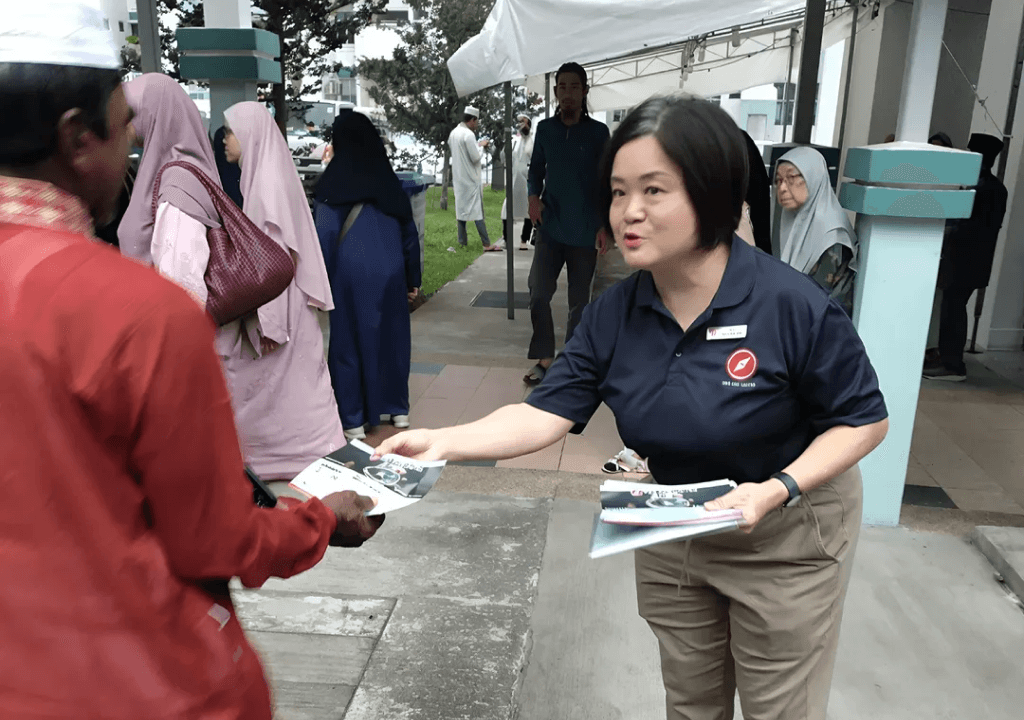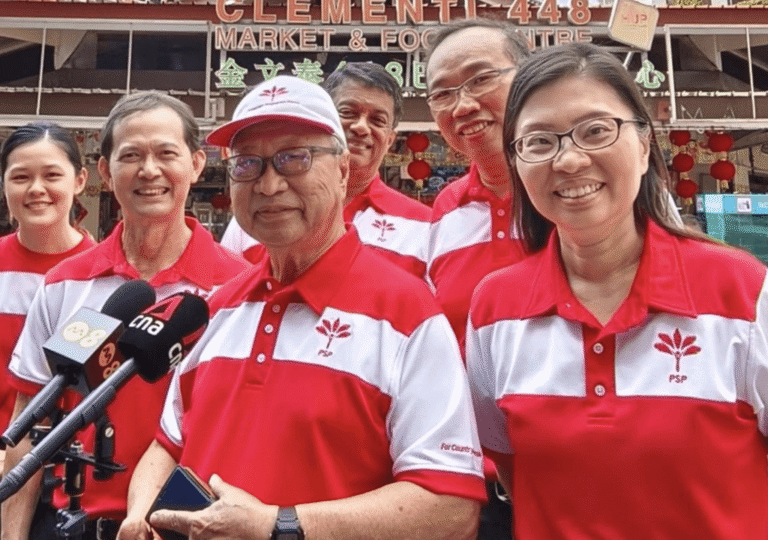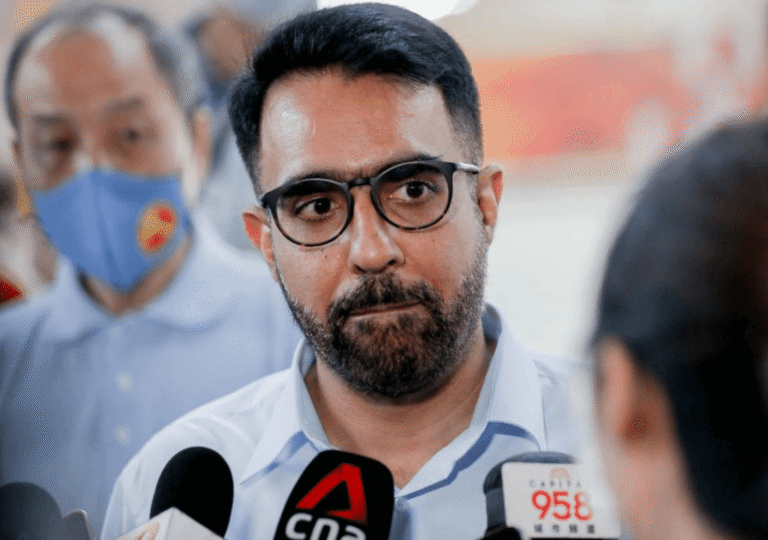Red Dot United (RDU), one of Singapore’s youngest political parties, was formed just before the last general election as a breakaway from the Progress Singapore Party (PSP). Since then, the party has struggled to carve out a clear identity in Singapore’s crowded centre-left opposition landscape. While it brands itself as a fresh and alternative voice, some critics argue that RDU has only further fragmented the opposition.
In its first electoral outing, the party did not secure any seats but garnered over 30,000 votes—a modest showing, yet one that signaled potential. Now, as the 2025 general election approaches, RDU is setting its sights higher. It no longer wants to simply be part of the conversation; it wants a seat in Parliament.
With that goal in mind, the party is focusing its campaign on issues that resonate with everyday Singaporeans, particularly the rising cost of living. At a press conference on April 3, party secretary-general Ravi Philemon announced that RDU will centre its campaign on such bread-and-butter concerns, while also advocating for fairer parliamentary representation.
Six Constituencies
After the release of new electoral boundaries for the 2025 General Election, Red Dot United (RDU) announced its plan to contest six constituencies. This decision follows discussions with other opposition groups and efforts to streamline campaign costs. One of the key battlegrounds is Jurong East–Bukit Batok GRC, a five-member constituency in the western region. On 15 March 2025, RDU held a porridge distribution event there, during which it introduced Pang Heng Chuan as a potential candidate.
The party also confirmed its intention to contest Nee Soon GRC, another five-member constituency in the north. While secretary-general Ravi Philemon did not confirm whether he would lead the team, he highlighted his strong familiarity with the area. He also introduced Dr Syed Alwi Ahmad, a 57-year-old private school teacher who serves as RDU’s head of policy and Malay bureau, as part of the Nee Soon slate.
In addition, RDU will field candidates in Tanjong Pagar GRC, a five-member constituency that spans central and western Singapore. The party also plans to contest three single-member constituencies: Jurong Central in the west, Jalan Kayu in the north-east, and Radin Mas in the central region.
For the Common People
This election, Red Dot United (RDU) is putting forward a platform focused on practical solutions to ease the financial pressures faced by everyday Singaporeans. During a walkabout at Yishun Park Hawker Centre, RDU secretary-general Ravi Philemon told reporters that the party would concentrate on issues that have a direct impact on people’s daily lives.
He pointed out that many families are struggling to cope with the rising cost of food and increasing tuition fees. Addressing these concerns, he said, would be at the heart of RDU’s campaign. As part of its proposals, RDU is calling for the Goods and Services Tax (GST) to be reduced back to 7 percent—arguing that this would provide immediate financial relief to households. The party is also pushing for the removal of Singapore’s carbon tax, which it believes is adding to the cost burden for ordinary citizens.
Can RDU make it?
While Red Dot United (RDU) is focusing on issues that directly affect the daily lives of Singaporeans, the party recognizes that this alone may not be enough to secure a seat in Parliament. Most of the constituencies it plans to contest are currently held by the People’s Action Party (PAP), which continues to enjoy significant institutional and political advantages. In response, RDU secretary-general Ravi Philemon is not only campaigning on policy issues but also questioning the commitment and ethics of his opponents.
Philemon expressed concern over whether current Members of Parliament in Nee Soon are effectively addressing the needs of their constituents. He cited public feedback on Mr Derrick Goh’s recent promotion to Group Chief Operating Officer at DBS Bank and questioned whether such a demanding corporate role might affect Goh’s availability and effectiveness as MP for Nee Soon Link and chairman of the Nee Soon Town Council.
Philemon also voiced concerns about Minister of State Muhammad Faishal Ibrahim and former Nominated Member of Parliament (NMP) Syed Harun Alhabsyi. He pointed to growing speculation that Prof Faishal could be redeployed to the newly created Marine Parade–Braddell Heights GRC, following his appearance at a walkabout in Eunos on March 30. Meanwhile, Dr Syed Harun’s presence at a community event in Nee Soon on March 27—alongside several new PAP figures—has fueled rumors that he may be fielded in the constituency.
Philemon questioned the reasoning behind moving Prof Faishal—currently the MP for Nee Soon Central—while introducing a former NMP like Dr Syed Harun into the same area. He raised ethical concerns, pointing out that NMPs are appointed precisely for their non-partisan stance. If Dr Syed Harun plans to run under the PAP banner, Philemon argued, there should be clarity on when he made the shift from a neutral position to one aligned with the ruling party.
Dr Syed Harun and fellow NMP Raj Joshua Thomas both resigned from their posts on February 14, nearly a year before their terms were set to end. At a briefing on March 31, Law and Home Affairs Minister K. Shanmugam confirmed that the Constitution allows NMPs to step down in order to join political parties and contest elections.
While Philemon acknowledged that such moves are legally and constitutionally allowed, he emphasized that legality does not always align with ethical standards.
It seems that Philemon and RDU have found the right campaign formula. The party is launching its bid with a focus on the rising cost of living and a call for fairer representation in Parliament—while also holding incumbents accountable. RDU believes this strategy could pave its way into Parliament







